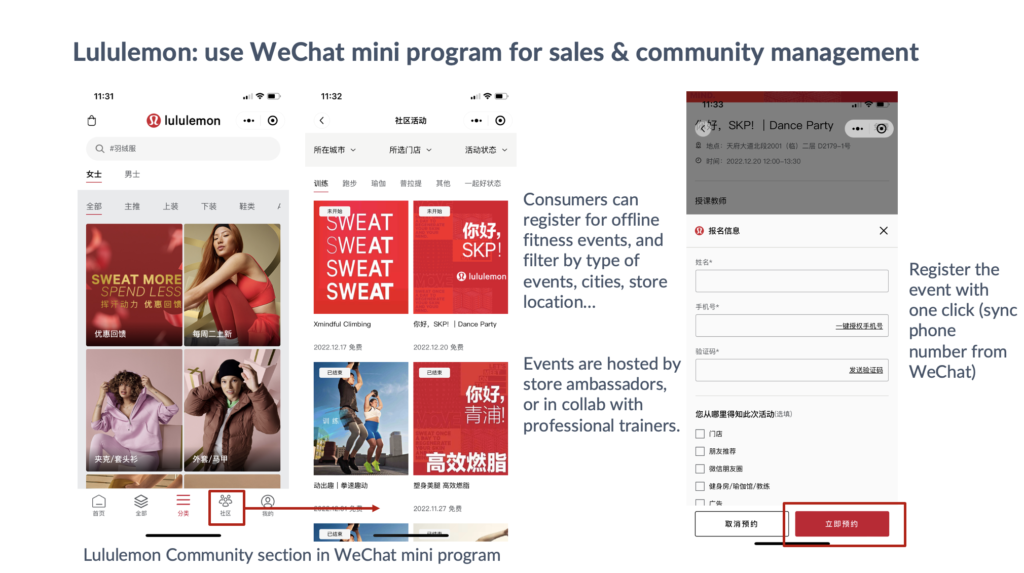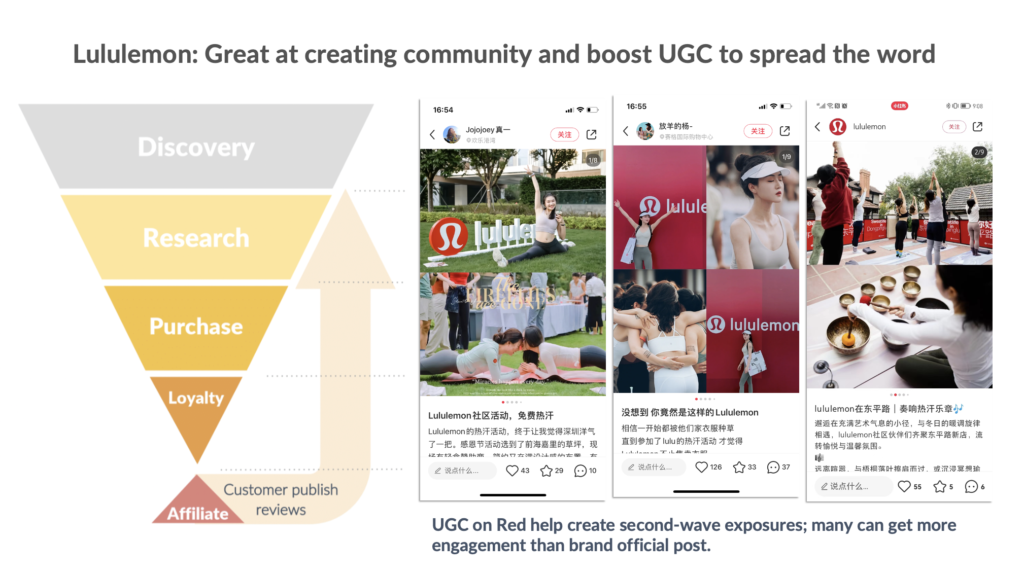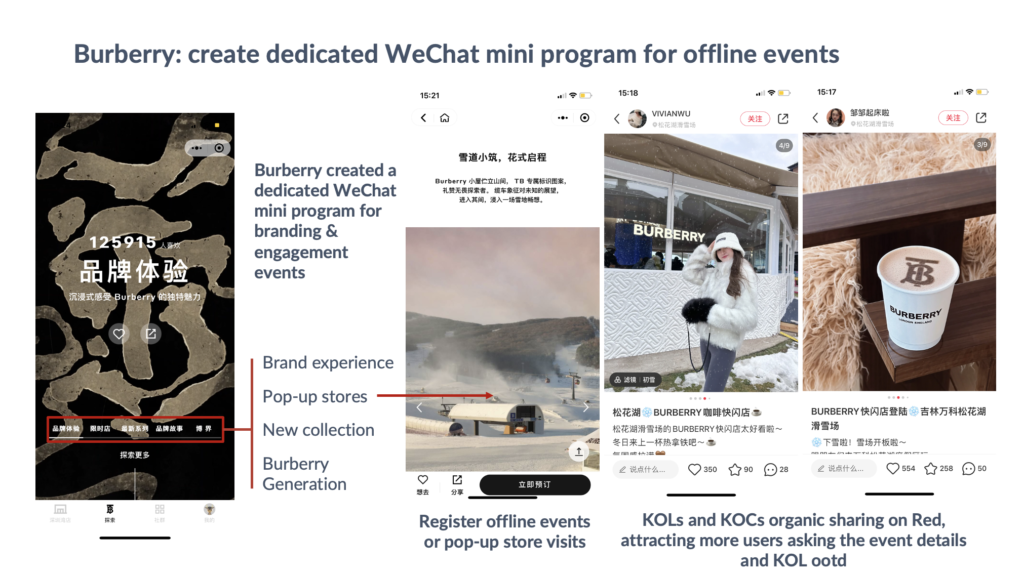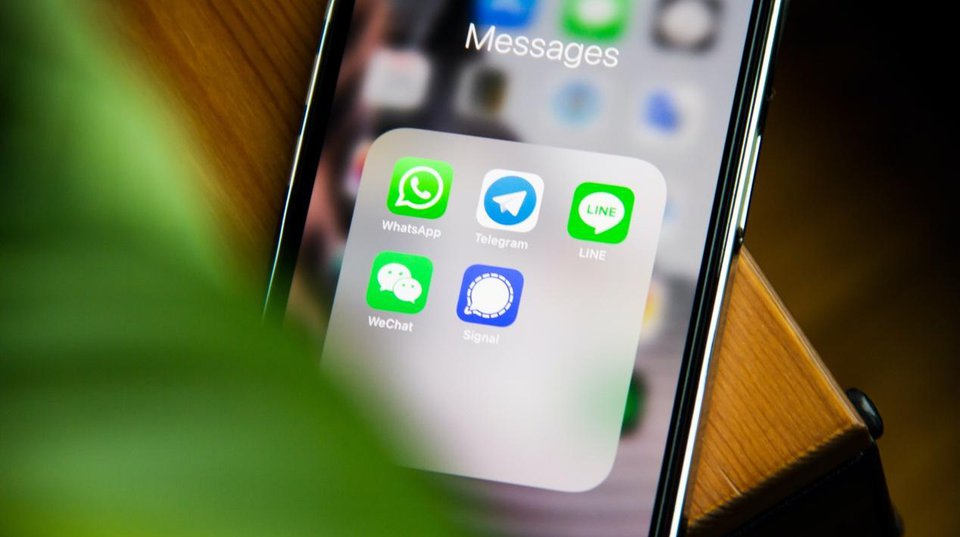WeChat has been losing momentum against Douyin and Red, but it doesn’t mean the platform is dead to marketers. Apart from operating a WeChat Official Account and selling on WeChat Stores, what else can brands do? Read on to discover several ways to leverage WeChat in the post-Covid China.
In this article, we will cover a few tips:
- Create WeChat Groups to engage with your loyal VIP consumers and hear their feedback
- Leverage WeChat mini program for offline events registration & engagement campaigns
- Use WeChat Channels (WeChat Video Account) to republish your Douyin videos
- Run WeChat retargeting ad campaigns during key sales seasons
WeChat remains strong as a loyalty & community platform
Apart from selling on WeChat Store, WeChat is often used as a loyalty platform. Brands can create WeChat groups to engage with loyal customers or launch a WeChat mini program with membership program or offline events.
For example, Lululemon leverages WeChat mini program to organize offline fitness events, in collaboration with Lululemon offline store staffs or professional trainers. Users can find group activities such as body combat, running, yoga, pilates, etc in major cities cross China. Such activities help affiliate customers and create a positive emotional attachment to the brand.

That’s not the end of the story. The loyal brand lovers will share their experience on social media (Red/Xiaohongshu, for example), creating an organic second-wave exposure. We noticed that these UGC contents can get more genuine engagement than brand account. Such exposure will also attract new potential brand lovers and close the loop from loyalty to new consumer acquisition.

Create WeChat mini program for branding & engagement
During Covid, luxury brands built WeChat mini programs for VR store, offering customers a similar shopping experience while offline shopping wasn’t possible.
Right now, as most Chinese cities have opened up, offline activities have vibrated again. More brands are using WeChat mini program to drive traffic offline.
For example, Burberry built a pop-up store & café in a ski resort and used a dedicated WeChat mini program to invite customers to explore their offline location. Outdoor Ski is considered a “luxury” sport in China because of the skiing equipment’s pricing, the sport’s seasonality, and the scarcity of quality ski resorts.
By opening a pop-up store at ski resorts, Burberry hit three birds with one stone:
- Accurately target high-income groups with sophisticated lifestyles to showcase their winter jacket collection
- Offer an entry experience (coffee with Burberry logo), which is quite affordable for people who are interested but intimidated by the price of the ready-to-wear collection
- Encourage social sharing and create more buzz and “desire” among the mass audience
Every year, top luxury brands create dedicated campaigns on WeChat mini programs, especially on special occasions such as new collection drops, store openings, Chinese New Year, Chinese Valentine’s Day, etc.

In November, Louis Vuitton launched a dedicated WeChat mini-program game called “Ma Jump” (麻Jump) to create buzz for its very first restaurant, “THE HALL,” opening in Chengdu, China.
In this mini-game, players need to control the direction of a small ball to reach the goal. The game itself is not too original, but what’s more exciting is the local cultural elements that Louis Vuitton embraces in this small game:
- The name of the game resembles “Ma Jiang (麻将)” in Chinese, which is a traditional tile-based game well-spread across the country;
- Apart from LV’s Monogram, users can notice more Chinese elements such as panda, chilly pepper, stone lines;
- the background music of the game is created by a local rapper, etc…
Louis Vuitton did a great job going “Glocal,” maintaining a luxury positioning while showing respect for traditional Chinese culture. The effort has gained goodwill and recognition from local customers.
Leverage WeChat Video Account (WeChat Channels) just like Douyin
WeChat also noticed that traditional text articles in Official Accounts are losing traction and have launched a “copycat” of Douyin within the WeChat ecosystem, called WeChat Video Account or WeChat Channels.
Up to 2021, WeChat Channels have 500 million DAU (Daily Active Users), growing at 79% year-on-year. It’s expected to reach 600 million DAU in 2022. Compared to Douyin‘s 800 million DAU, WeChat Channels still have some way to go.
WeChat put a lot of effort into attracting content creators and supporting their monetization with traffic coupons. However, for brand accounts, we can still notice a significant gap between the viewership and engagement between WeChat channels and Douyin.
For brands already operating a Douyin account, it’s wise to republish the Douyin content on WeChat Channels, without putting too much effort on this channel. To be honest, most of the traffic and engagement will still come from Douyin.
WeChat Ads can yield positive ROI for retargeting
For branding campaigns, WeChat Moment Ads remains a powerful tool to reach a maximum of 1.4 billion Chinese people. If you have a WeChat mini program and have access to retargeting data (for example, store visitors, add-to-carts, purchased users), WeChat retargeting ads can yield very positive ROI. If you need help with how to do so, feel free to reach out to us!
WeChat Marketing Conclusion
In summary, WeChat is losing momentum as a content platform. Maintaining engagement or gaining new followers on WeChat Official Account is hard without advertising spending or purchasing views. But still, there are ways to better leverage WeChat, especially for loyalty.
If you need help with your WeChat or general China marketing, feel free to reach out to us by the bottom below, and we will help you define the best strategy!

